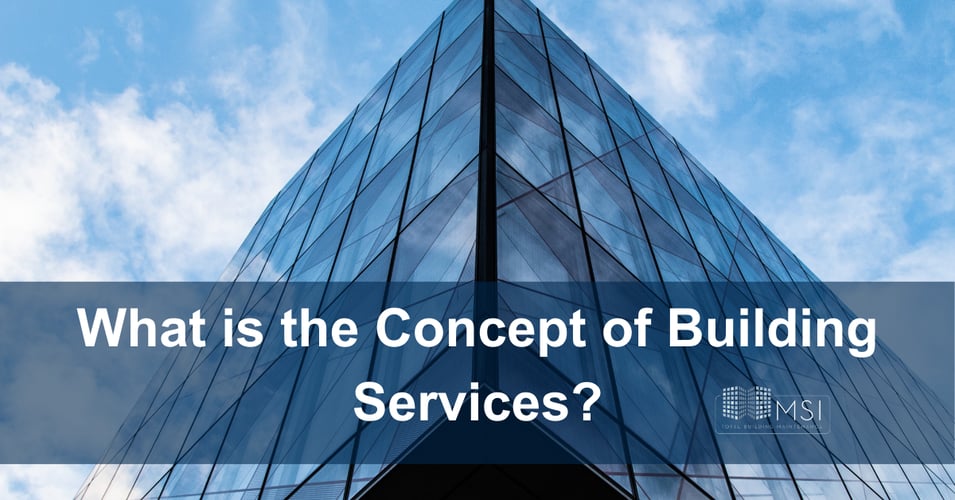What is the Concept of Building Services?

Table of Contents
Building services form the backbone of any functional structure, ensuring spaces are safe, comfortable, and operational. From the electrical systems powering devices to the plumbing that delivers clean water, these services bring buildings to life. But, what exactly encompasses building services? Let’s break it down—especially for those managing complex properties like a commercial facility maintenance in St. Paul project or hiring a facilities management company in Minneapolis.
What do we mean by building services?
The term building services refers to the collection of systems, utilities, technologies, and facilities within a building that support functionality, comfort, safety, and adaptive design. These services make life possible within the walls of a structure.
This building services list highlights some of the most crucial elements:
- Heating, ventilation, and air conditioning (HVAC) systems.
- Plumbing and sanitation, including rainwater harvesting and drainage.
- Electrical systems, including lighting, data networks, and power distribution.
- Fire safety measures, such as smoke detectors and sprinklers.
- Communication networks, like Wi-Fi and telecommunication systems.
- Elevators and escalators for vertical transport.
To learn more, check out our types of building services PDF offered by experts like Managed Services Inc and MSI building maintenance.
What is the purpose of building services?
The purpose of building services is to enable every aspect of a building to operate efficiently while prioritizing the comfort and safety of its users. Properly-designed systems ensure functionality and longevity in multiple ways. For example, HVAC systems not only regulate temperatures — they also maintain optimal humidity and air flow. Similarly, lighting designs in modern buildings save energy while maximizing illumination.
To better understand, consider these building services examples:
- Zoned HVAC systems for precise temperature control in office buildings.
- Smart lighting with sensors for energy efficiency in homes.
- Centralized water heating systems in hotels.
- Integrated fire safety alarms connected to sprinklers in large complexes.
The design and implementation of building services depend on the purpose and size of a building. For example, a commercial skyscraper needs more advanced electrical and fire safety systems than do smaller residential buildings.
The Importance of Building Services
Building services are important for 10 main reasons. They:
- Create comfortable and livable spaces.
- Improve indoor air quality.
- Ensure compliance with safety regulations.
- Enhance overall energy efficiency.
- Support accessibility (for example, elevators and ramps).
- Facilitate effective communication (such as through telecommunication systems).
- Provide reliable water supply and wastewater management.
- Promote environmental sustainability (with green building technologies).
- Extend building lifespans through proper maintenance.
- Ensure a building has a high-quality, functional design.
Whether you’re coordinating with a facilities management company Minneapolis or planning building maintenance and repair services, these functions are crucial. Plus, the benefits of regular building maintenance cannot be overstated—they reduce costs, prevent breakdowns, and improve tenant satisfaction.
Final Thoughts
Building services are essential to the functionality, comfort, and safety of any structure. From HVAC to fire safety, these systems work together to create spaces where people can thrive. Whether you're managing operations in Minneapolis or require commercial facility maintenance St. Paul, reach out today to discover how a professional building service consultation from Managed Services Inc or MSI building maintenance can optimize your next project.







